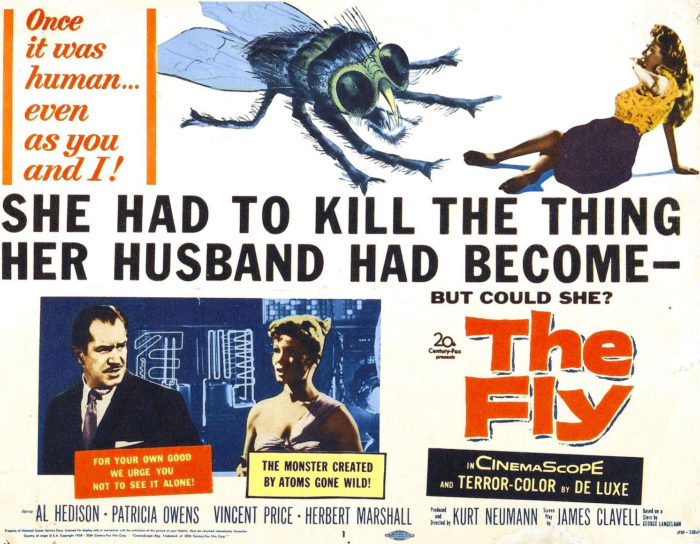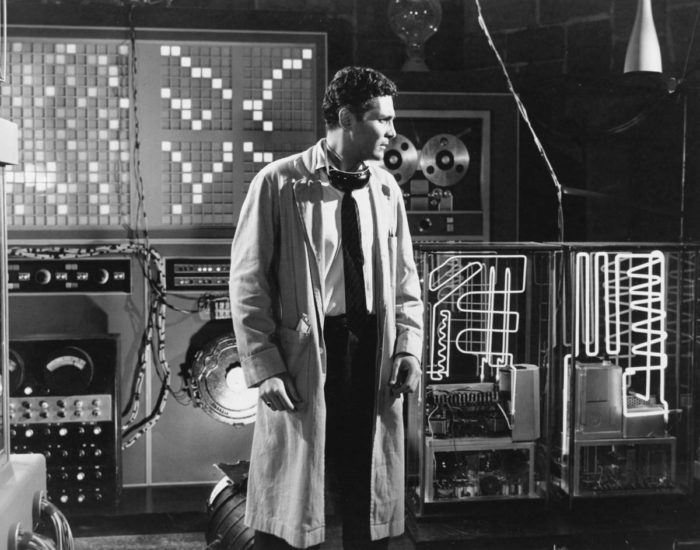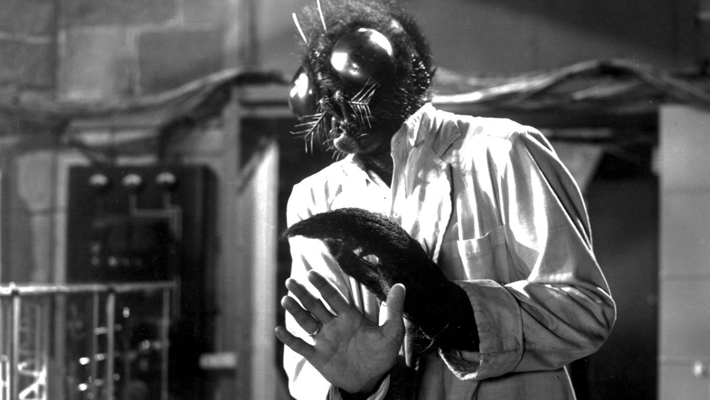Cinema has evolved greatly over the past 100 years, but I believe none has evolved as tremendously and wildly as science fiction. Because of movie effects and the nature of the genre, comparing the sci-fi films of yesteryear to the films now is mind-boggling.
So how do those old sci-fi films stand up next to the current ones? They may be called classics, but are they really still great films decades later?
In the From the Black Hole reviews, we will watch, review, and enjoy the sci-fi films of yesterday today. In the second installment of the series, we sit down to judge the 1958 version of The Fly.

The Fly is a great, historic sci-fi film about a scientist pushing the boundaries of human progress and how he suffers for his ambition. The film starts with the finding of the body of Andre, a renowned scientist, and his wife, Elaine, being suspected for his murder. Through the movie, it’s discovered what had happened to Andre and why he had to die, taking a cautionary stance on the progress of science.
But what do I think about it?
In concept, I think the film is brilliant. It questions the limitations of science and how far man can push before things become too dangerous. It shows the folly of a man’s ambition and pride. It shows the impossible nature of first discovery and what can happen afterward. Yet the film is also too smart to take the easy, “science is too dangerous” route, by having Andre’s son, Philippe, show an interest in science despite his father’s death. Instead of warning him away from science out of fear, Francois and Elaine say it’s dangerous but it’s also very brave, walking that gray line that science sometimes has. Regardless of their past trials, they see science as it is, instead of just fearing it.

That does not mean the movie is brilliant in execution, though. The film is framed by starting with Andre’s death, and is told mainly through the eyes of Elaine and Francois. Yet, I personally believe the film could have been far more effective through Andre’s eyes, watching his pride and ambition slowly supersede his logic and brilliance. One of my favorite moments is watching the actor’s face when his excitement for testing his device on living things supersedes his logic about safety. His zealous curiosity is dangerous, even though it’s exactly what makes him so brilliant. Framing it the way they did makes it easier for the general public to relate to the main characters we follow, but I think Andre’s motivations and changes were more compelling, so following him closely would have been more thought-provoking and fascinating: seeing a brilliant man turn into a brilliant monster.

And also, of course, there is the elephant in the room for all of these old movies: the effects. This movie is a surprising mixed bag. The practical effects of the monster prosthetics were pretty damn good. The arm was realistic, and the head looked seamlessly melded onto the actor. However, the effects of the fly near the end of the film were painfully laughable. I hardly want to ruin the scene, because it’s goddamn gold the first time you watch, but it’s unrealistic to the point of hilariousness. The rest of the effects were unremarkable. They were clearly fitting for the time but are uninteresting and un-problematic now. It’s hard to describe how I feel about the effects overall, but if that one scene of terrible effects didn’t exist, I’d be supremely impressed for 1958.
In conclusion? It makes me want to watch the 1986 version of The Fly from David Cronenberg. From the vague bits I know about it, I gather it has things framed more like how I’d prefer it. Also, it simplifies the cast, which makes the focus on our scientist much easier: no Francois, no investigator, no Philippe. Having the film focus more on the scientist, his psyche, and downfall seemed far more compelling the entire time I watched The Fly, so I’m excited someone else saw it, too. I give the monster makeup top marks, especially for the time period, but the rest of the effects could have definitely used some work. Overall, the film is interesting and gives great thoughts to chew on, but it can be slow, over-cluttered with characters, and ultimately a little underwhelming. I give the 1958 version of The Fly a 7/10.
